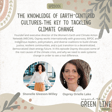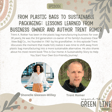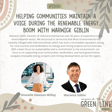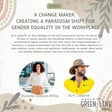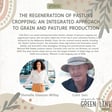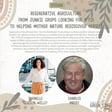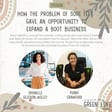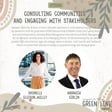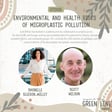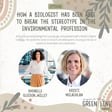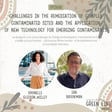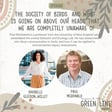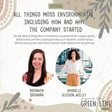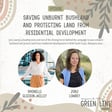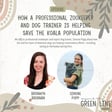
The Early Stages and Pitfalls of Running An Environmental Consultancy
Today on Beyond the Green Line, Shonelle Gleeson-Willey talks with James Hammond, founder and CEO of 4Pillars Environmental Consulting.
James manages a 14-person team that provides a wide range of services in environmental management and compliance, contaminated waste solutions, and impact assessment.
James has a scientific and professional background, and a love for strategic environmental management. Shonelle asks about his journey to becoming an environmental consultant, and what his advice would be to young professionals that may want to enter into the field of consulting.
Getting his business off the ground included starting in a garage office, relying on grassroots word of mouth leads, and plenty of hard work. James made a decision to avoid being a sub-contractor under another companies, because he saw the advantage of only offering services directly to clients.
James describes the importance of building a support team and knowing your limits as a business owner, as well as patience and level-headed decision-making during the grind of building a business from scratch.
He implemented software and systems that would work even after the company grew, and always attempted to envision the end from the beginning. Whether a business owner’s end goal is passive income, getting acquired, or building a family legacy company, these differing end goals will effect strategic choices in the beginning stages.
James named his company 4Pillars because it operates under the presupposition that there are four pillars to sustainable development: environment, society, economy, and intergenerational equity. The pillars must be considered altogether in order to operate in ways that are responsible for tomorrow.
Shonelle and James discuss how some of 4Pillar’s current impact assessment projects are gathering their data and developing strategies for their clients. James shares that within cities, air, noise and water are usually the three focuses, whereas in more remote areas there are different priorities.
They reference the ongoing issue of asbestos contamination in soil, and the hope that policy consistency across different agencies and levels of government will move this important work in the right direction.
He talks about the times his assessments have resulted in avoidance recommendations, and how to present those types of recommendations effectively.
Volunteer work is often a part of the most effective environmental scientists and consultants, and James shares about his enthusiastic involvement with the Environmental Institute of Australia and New Zealand.
Today’s conversation also touches on the topic of green accounting and how it’s effecting the environmental consulting field.
This helpful interview with James Hammond is sure to be a source of inspiration for a lot of listeners, especially those who are starting out in the environmental consulting space.
